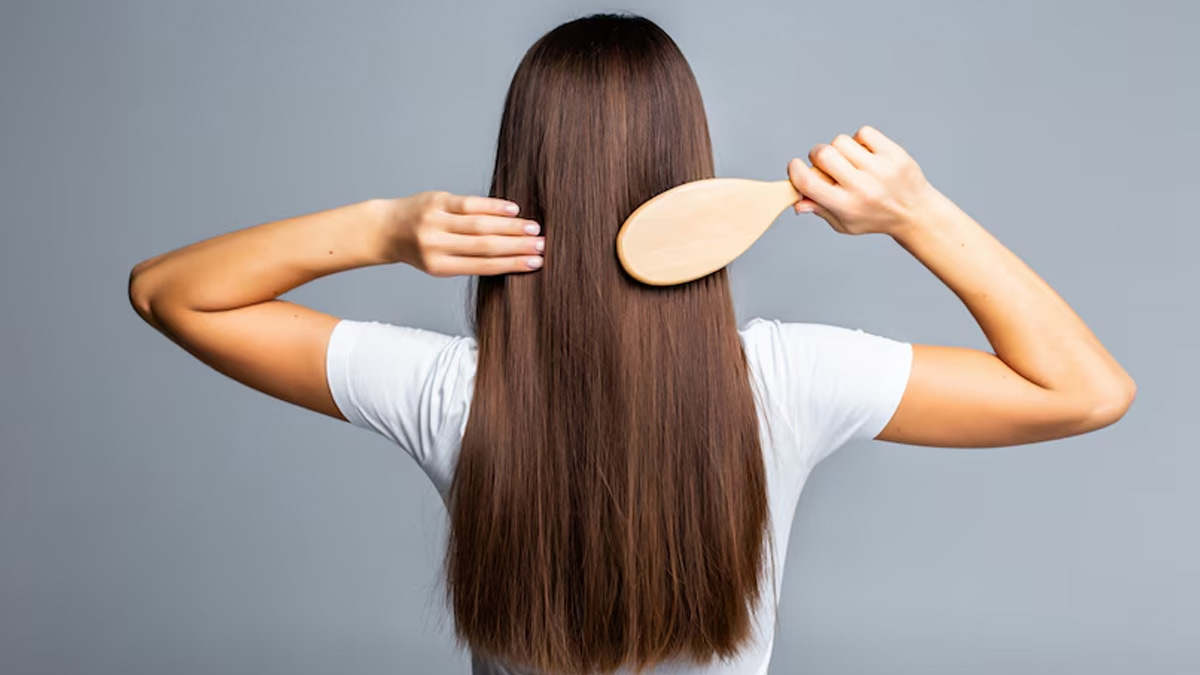
A consistent hair care routine can greatly benefit your hair. By selecting natural ingredients and appropriate products, you can tailor your regimen to suit your hair’s needs. Effective hair care doesn’t require an abundance of products. Here are some straightforward steps and expert advice from Dr Shital Poojary, Professor and Head of Dermatology at K.J. Somaiya Medical College & Research Centre, to help you manage your hair professionally.
To keep your hair in top condition, follow these essential steps for a healthy hair care routine:
Shampoo: Choose a gentle, sulfate-free shampoo that suits your hair type (whether oily, dry, or normal). Wash your hair 2-3 times a week or as needed to prevent stripping away natural oils.
Frequency: Avoid washing too often, as it can lead to dryness. Adjust the frequency based on your scalp’s needs.
Conditioner: After shampooing, apply a conditioner to nourish and detangle your hair. Select one that fits your hair type and addresses specific needs like moisture or volume.
Leave-in Conditioner: Consider using a leave-in conditioner for extra hydration and protection.
Hair Masks: Apply a deep conditioning treatment or hair mask weekly to provide deep moisture and repair any damage.
Natural Masks: DIY options like avocado, honey, or coconut oil can be great for deep conditioning.

Towel Drying: Gently blot your hair with a towel rather than rubbing it to prevent breakage.
Air Drying: Whenever possible, let your hair air dry. If you need to use a blow dryer, set it to a low heat and keep it at a safe distance.
Don't Miss: How to Remove Egg Smell from Hair: Simple Tips & Tricks
We reached out to Dr Shital Poojary, Professor and Head of Dermatology at K.J. Somaiya Medical College & Research Centre, who provided us with valuable tips for keeping hair healthy.
Maintaining a balanced diet is crucial for healthy hair, including sufficient protein and a variety of vitamins and minerals. Hair loss can often result from anaemia or vitamin deficiencies. Ensure your diet includes plenty of fruits and vegetables (at least 3 to 4 servings daily). Vitamin supplements should only be taken if deficiencies are confirmed and should be recommended by a dermatologist.
Water Temperature: Always use lukewarm water, never hot, when washing your hair.
Shampoo Frequency: Adjust shampooing based on your scalp type:
Oily scalps may need shampooing 2-3 times a week.
Dry scalps typically require shampooing just once a week.
Avoid Scarf on Wet Hair: Women should not wrap wet hair in a scarf to prevent infections such as piedra.
Conditioner Use: For dry hair, use a conditioner applied only to the hair shaft, not the scalp. Conditioners help reduce static, smooth the hair, and offer protection against pollutants.
Dandruff Treatment: Use a medicated shampoo prescribed by a dermatologist for dandruff.
Sulfate-Free Shampoos: Opt for sulfate-free shampoos.
Oil massages, such as with coconut oil, are common practises. It’s beneficial to use coconut oil once a week. However, avoid daily oiling and leaving oil on your scalp all day.

Covering Hair: Use a tight-fitting shower cap to protect your hair from chlorinated water.
Post-Swim Care: After swimming, shampoo your hair and apply a conditioner to help repair any damage.
Don't Miss: Quick Care Tips To Repair Damaged Hair, Expert Weighs In
Keep reading Herzindagi for more such stories.
Credits: Freepik
Also watch this video
Herzindagi video
Our aim is to provide accurate, safe and expert verified information through our articles and social media handles. The remedies, advice and tips mentioned here are for general information only. Please consult your expert before trying any kind of health, beauty, life hacks or astrology related tips. For any feedback or complaint, contact us at compliant_gro@jagrannewmedia.com.